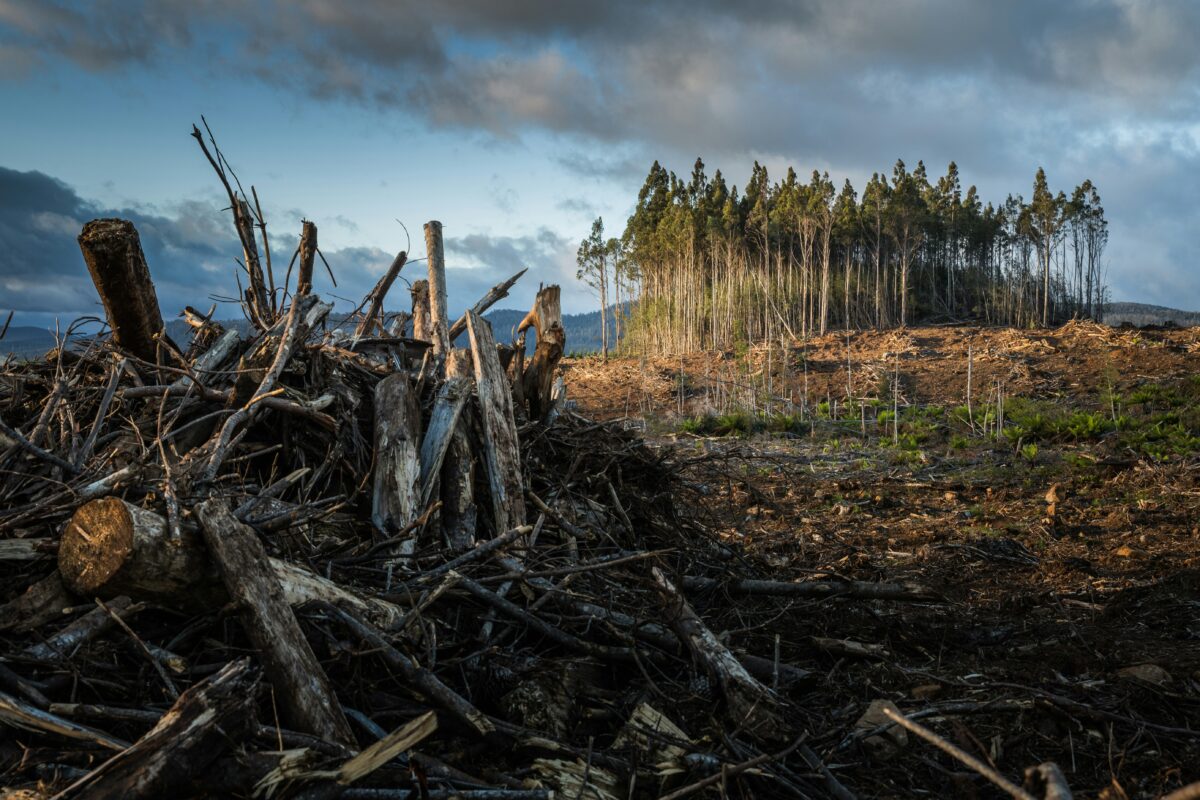In the early weeks of 2020, horrifying images circulated mainstream and social media as one of the deadliest wildfires in Australian history ravaged the country’s landscape, wildlife, and citizens. 33 people were killed, around 44.5 million acres of land was destroyed, and 3 billion animals were killed or displaced, greatly affecting the expansive biodiversity of the continent. Many scientists have found that the wildfires were more deadly because of climate change, which contributed to the extreme drought and above-average temperatures Australia was experiencing. Because the effects of climate change are only increasing, Richard Thornton, director of the Bushfire and Natural Hazards Cooperative Research Center, stated that the intensity seen in the 2020 wildfires could become more common if drought and high temperatures continue. The Australian government, under Prime Minister Scott Morrison, has taken a concerning approach: implementing insufficient climate pledges, while undermining scientific research and failing to produce true legislative action, whether it be helping mitigate climate change or adapting to the new wildfire-filled reality.
Prime Minister Morrison has a controversial relationship with climate change, often using contradictory rhetoric when discussing his stance on the issue. In the aftermath of the 2020 wildfires, Morrison did acknowledge the effects of climate change and committed his government to reducing greenhouse gas emissions 26% by 2030 compared to their 2005 levels. Nevertheless, his previous and current actions regarding the issue weaken this stance. Not only does Australia have one of the world’s highest per capita levels of emissions, but it’s also one of the biggest fossil fuel exporters in the world.
In February 2017, Morrison infamously addressed the Australian House of Representatives, holding up a lump of coal and telling the politicians to not be afraid of it, mocking their disdain for the fossil fuel industry. Morrison’s track record with the environment continues to be problematic throughout his role as prime minister. While he did make an emission reduction pledge, many felt as if the promise was deficient compared to countries similar to Australia. Climate activists within the country called on their government to pledge to achieving net zero emissions by 2050, but the government has failed to do so, making it one of
the only developed states to not have one (over 100 currently have enacted a plan to attain net zero emissions). Additionally, Morrison also has stated plans to expand the utilization of gas to help reestablish the Australian economy in the aftermath of the coronavirus pandemic. In a speech, he stated that there is “no credible energy transition plan for an economy like Australia that does not involve the greater use of gas.” The Morrison government, furthermore, controversially transferred some environmental approval powers from the federal level to the regional government of Western Australia. In doing so, the Australian government “gave the states more authority in approving developments, but was only recommended if the national government put in strong environmental standards and established independent agencies” to ensure the standards were enforced. So far, that has not happened. This move was conducted under pressure from both the Western Australian government and powerful companies, such as Rio Tinto, the world’s second largest metals and mining corporation. Experts warned against this politicization of the environmental law reform process, as it was contradictory to a review conducted by a royal commission established in 2020 by the Australian government.
In the report, strong language was employed guiding the Australian government to tackle the climate issue using a federal strategy, rather than a regional strategy. It concluded that “Australia needs a national approach to natural disasters,” determining that “government measures will be necessary across land-use planning, infrastructure, emergency management, social policy, agriculture, education, health, community development, energy, and the environment.” Furthermore, the report expresses the disdain the Australian citizens felt for the government’s lack of response to the national disaster, stating that “the Australian public expected greater Australian Government action.” Contentiously, the Australian government has failed to employ any serious federal legislation to counter the effects of climate change. The only new policy from the Morrison government in 2020 regarding the environment was a “low-emissions technology roadmap” released in September, where it claimed that “developing five new technologies could avoid 250m tonnes of emissions a year by 2040,” with no explanation of how those numbers were reached.
Because the Australian government has completely failed to enact comprehensive environmental policy in the aftermath of the deadly wildfires, the effects of climate change are not being combatted through legislation. The government has continually supported industries, like fossil fuel extraction, that proliferate the adverse consequences of global warming and explicitly contributed to the scope and danger of the 2020 wildfires. Additionally, the coronavirus pandemic has only furthered the isolation faced by those who lost their homes in the fires. The Australian people are still struggling to rebuild not just their homes, but also their livelihoods. With the Australian states in lockdown, many citizens feel “forgotten”, and many “are still living in tents and RVs on their properties.” The response from the government has contradicted the public opinion of Australia; in a study conducted by The Australia Institute, 59% of participants said that they want to see Australian economic recovery led by renewable energy, and 68% said that they support a net-zero target by 2050. While the Australian government has yet to enact any clear and comprehensive legislation to tackle climate change, the citizens of Australia are calling for help from the disastrous wildfires and their future counterparts.
It is possible that 2021 and the recent election of Joe Biden could bring a shift in Morrison’s government rhetoric surrounding the environment. Many other countries, such as Japan, South Korea, and the UK, who anticipated a Biden victory, put in place or raised their net zero emissions pledges, reflecting the Biden administration’s stance on environmental issues. It may be in Australia’s best interest to follow in these footsteps, especially because many feel as if the current emission reduction pledge in place will not be achieved without using carryover credits from the Kyoto Protocol period (though Morrison has stated that the country will not be required to use them). In order to achieve their targets, Morrison has stated that the future for Australia will include “unlocking low emissions technologies…like hydrogen, carbon capture and storage, green steel and aluminum” and that Australia “remains firmly committed to the Paris agreements and the commitments” the country has made. This recent shift in tone regarding the environment is promising. However, until practical environmental legislation is enacted, words are only the first step. Unless Australia can lower its emissions and contribute to the fight against climate change, more wildfires, similar or even greater in scope to the ones in 2020, will continue to occur.
Sources:
Albeck-Ripka, L. (2020, December 30). One year on from horrific fires, Australians struggle to rebuild. National Geographic. https://www.nationalgeographic.com/environment/article/one-year-on-horrific-fires-australians-s
truggle-to-rebuild
Baker, N. (2021, February 4). One year since Australia’s devastating wildfires, anger grows at climate change ‘inaction’ [NBC Universal]. NBC News. https://www.nbcnews.com/science/environment/one-year-australia-s-devastating-wildfires-anger-grows-climate-change-n1256714
Colvin, R. (2020, October 27). New polling shows 79% of Aussies care about climate change. So why doesn’t the government listen? The Conversation. http://theconversation.com/new-polling-shows-79-of-aussies-care-about-climate-change-so-why-
doesnt-the-government-listen-148726
Cox, L. (2021, February 5). Documents show Scott Morrison has “bungled” environment law reform, Labor says. The Guardian. http://www.theguardian.com/environment/2021/feb/06/foi-documents-show-scott-morrison-has-bungled-environment-law-reform-labor-says
Galloway, A. (2020, November 22). Scott Morrison says world should focus on environment in wake of pandemic. The Sydney Morning Herald. https://www.smh.com.au/politics/federal/scott-morrison-says-world-should-focus-on-environme
nt-in-wake-of-pandemic-20201123-p56gz0.html
Mazengarb, M. (2019, July 17). Five years after carbon price repeal, Australia remains in policy abyss. RenewEconomy. https://reneweconomy.com.au/five-years-after-carbon-price-repeal-australia-remains-in-policy-a
byss-43066/
Morton, A., & Murphy, K. (2020, November 28). Scott Morrison’s climate language has shifted– but actions speak louder than words. The Guardian. http://www.theguardian.com/environment/2020/nov/29/scott-morrisons-climate-language-has-shifted-but-actions-speak-louder-than-words
Royal Commission into National Natural Disaster Arrangements. (2020). Report of the Royal Commission into National Natural Disaster Arrangements (p. 594). https://naturaldisaster.royalcommission.gov.au/system/files/2020-11/Royal%20Commission%20into%20National%20Natural%20Disaster%20Arrangements%20-%20Report%20%20[accessible].pdf

